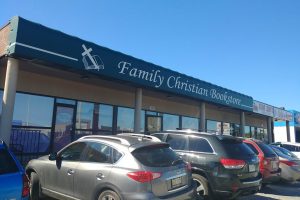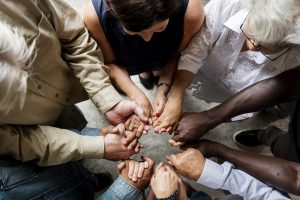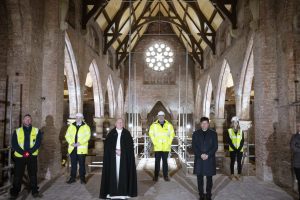In seeking wellness through God’s creation, many Christians are discovering how cbd products canda align with biblical principles of stewarding our health. Scripture teaches us that our bodies are temples of the Holy Spirit (1 Corinthians 6:19-20), calling us to thoughtful consideration of natural remedies that honor this truth. As believers navigate modern wellness options, CBD oil emerges as a plant-based solution that reflects God’s provision of “every herb bearing seed” (Genesis 1:29) for our benefit. This exploration of faith-based wellness through CBD…
What We Do
…

Bookstores
Our online shop and bookstores include a broad selection of Bibles, books, and other items to help you connect with God’s Word.
Moreover, our various Key Way Canada locations provide a wide range of Bibles in English, French, and several native languages. In addition, they also sell Bible study materials, religious books, academic publications, children’s picture books, and comics, as well as other items.
With that said, our commitment to providing excellent customer service and quality assurance binds us together as a team. Therefore, making time for enjoyment and a dedication to helping others bring us together as a …

Pray With Us
Thank you for joining us in prayer! We have always believed that a good person’s prayer can have a significant impact on this world.
Because of this, we invite individuals, prayer groups, and institutions to rise and pray for our country as a collective.
So, please pray for the safety of all Key Way Canada employees and their families across the globe as they remain to work hard to make God’s Word available to people in need of peace and joy during these challenging times.
Moreover, we also pray for ongoing strength and motivation to do our best. At the same time, we also seek out ways on how to stay connected …

Careers
Do you want to be a part of this exciting journey of providing individuals with access to God’s Word? If you have a strong interest in Christianity, you may join our expanding team at this critical moment!
We are committed to having a workplace that encourages and supports diversity at Key Way Canada. Here, we seek to establish an atmosphere where our staff may develop in their job for the glory of God, with God’s aid and guided by biblical teachings and our founding principles.
Moreover, we are a non-profit organization that collaborates with folks, churches, and religious groups in Canada and overseas that share the …

Volunteer With Us
For many years, volunteers have been significantly involved in the work of Key Way Canada. In fact, volunteers are present at all levels of the organization.
After all, being a volunteer for Key Way Canada means meeting many individuals dedicated to delivering and sharing the Gospel of Jesus Christ.
Moreover, we recognize that volunteers are the future of our organization. This is why we value and appreciate our volunteers for who they are and the different ways they assist us in sharing God’s life-giving truth.
So, do you seek meaning in your life? If so, you can make a difference in the lives of others by sharing …

About Us
The mission of Key Way Canada is to fully understand and appreciate the Bible. Therefore, we advocate for the Bible as God’s revelation, presenting our savior, Jesus Christ, and the Divine Word.
Moreover, we are committed to being the leader in the translation, publication, and distribution of the Holy Bible. Therefore, we provide various formats and channels that engage diverse audiences thanks to our professional experience and innovations.
Lastly, we are firm believers that the Bible can be a way of revelation and redemption, especially when placed in the hands of someone where it is most needed. This is why we work hard…
Blog
…
Celebrate Christian Holidays with Delicious Freeze-Dried Candy Treats
Incorporate modern treats into your holiday celebrations by exploring new takes on traditional favorites, such as adding crml freeze-dried candy to Easter baskets or Christmas stockings, offering a delightful twist. Embrace the rich tapestry of Christian traditions by organizing community potlucks where everyone can bring a cherished family dish, symbolizing unity and shared faith. Infuse biblical messages into your treats by creating dessert …
100+ Biblical Words With Meaning to Use in a Vocabulary Quiz Game
To create a vocabulary quiz using the biblical words provided, you can start by designing a vocabulary quiz template. This template should include different sections for various types of questions, such as matching, fill-in-the-blank, multiple choice, and short answer questions. For each word, provide a definition or a context clue and ask the students to identify the correct word from a list of options or use the word in a sentence to show understanding. You can also include a section where students are given the …
What Do Christians Really Think About Vaping?
In an era where vaping has become increasingly prevalent, Christian communities are grappling with its implications for faith and lifestyle choices. While retailers like https://www.eurovap.ca/ serve adult consumers legally, believers seek to understand how this modern trend aligns with biblical principles and spiritual well-being. This exploration examines the diverse Christian perspectives on vaping, from scriptural insights to practical considerations, offering guidance for those navigating this contemporary issue through the lens of faith.
Understanding Vaping: A Modern Trend
Vaping…
Christmas In Canada Traditions- How Each City Celebrates
Christmas in Canada has got to be the most beautiful ever. There are endless Canadian Christmas traditions to keep up with. Even before Christmas day, different parts of Canada get into the holiday season, and it’s a sight for sore eyes.
As a country that spans six time zones and embraces various cultures, you can bet there are some unique ways Canadians enjoy the holidays. You can enjoy quaint Christmas shopping, a festive light display, or a one-of-a-kind New Year’s Eve party; it’s all here.
From coast to coast, each city puts its spin on the…
Does Religion Help You Quit Smoking and Even Vaping?
The Bible says that any form of addiction is sinful to the eyes of the God Almighty, and many Vaping suppliers consider smoking to be the one on the top of the list, besides drugs and gambling.
As such, many Christian religious programs worldwide have taken steps in combating this addiction within their believers.
In fact, in the United States alone, various religious bodies are taking steps to help their believers get rid of their smoking and vaping addiction by introducing programs that will help them along the way.
…
Seeing the Law Through the Gospel’s Perspective
Many young new attorneys were frequently asked by elderly individuals in the church how they planned to function in that profession while being devout Christian. Their responses were generally straightforward: “I could certainly serve God in any career.” They indeed never gave the matter much attention.
After all, there appears to be something unique about becoming an attorney that occupies not only one’s energy but also one’s identity. Lawyers, especially mighty ones, put in long hours.
The preceding statement is essentially universal, regardless of whether you work in a private office, non-profit, or government …
Racial Reconciliation Through the Gospel
Paul encourages believers to be deep and genuine in unity in Colossians 3:12-15. However, this is not really a universal call to togetherness but rather a call to unity in a place where the inherent boundaries of race are still so visible.
This passage sends a striking message to a church split along racial lines when read from this perspective. Even after the differences that exist in a broken world, the Gospel unifies all of God’s people, binding them together into one body.
Here, the Gospel is powerfully portrayed, and the Lord is immensely exalted when the assembled people of God display the power of the Gospel to …
Why Canadian Students Resent Christianity Teachings
What do you believe the current difficulties for Christian education are? How might Biblical courses assist students in dealing with adverse situations?
Overall, teaching the Bible and theology is challenging enough, but making it relevant to the students’ lives might be a more significant issue.
Unfortunately, many teachers are unfamiliar with fundamental human development theory, how people learn, or how to build a curriculum and design a rich learning experience.
So, in an age where younger folks define reality based on their subjective impressions, we might ask ourselves: Are we giving them the whole truth? Have …
